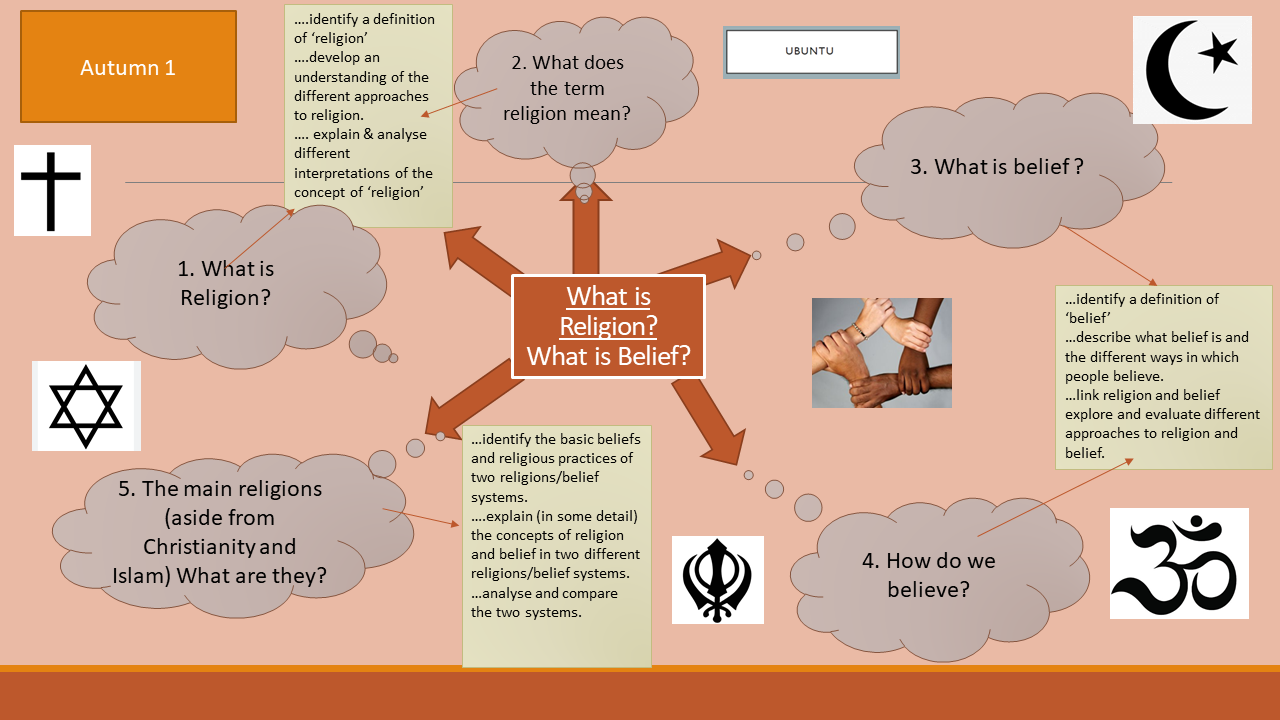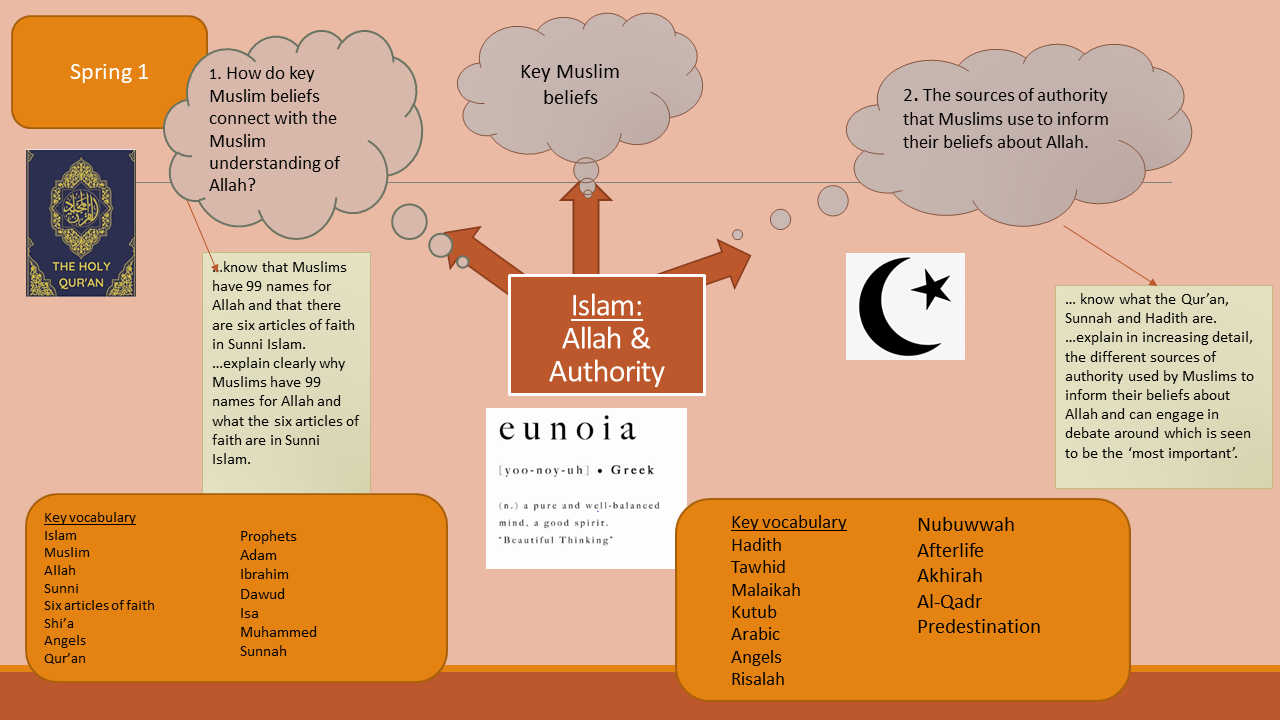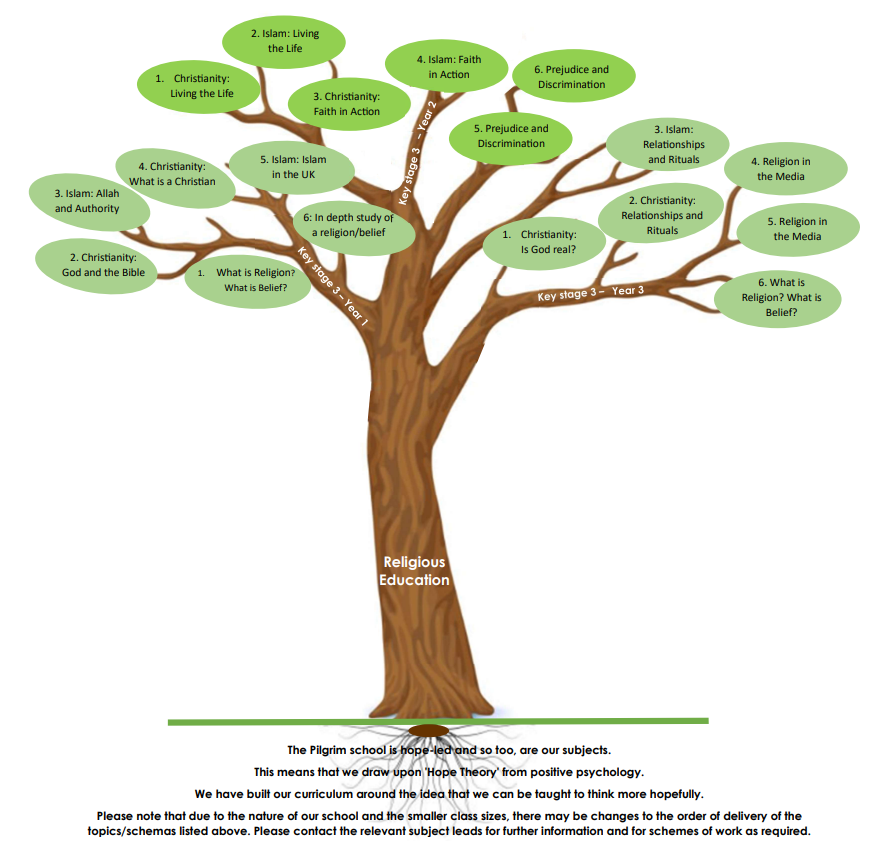RE
Introduction
This curriculum is based on three disciplinary areas:
- Theology (exploring how beliefs have shaped the way in which humans understand themselves, each other and the world around them)
- Human & Social Sciences (Investigating the ways in which religion and beliefs impact on human living)
- Philosophy (Investigating what humans claim to know and how they seek knowledge)
This aligns with the Lincoln Diocesan Board of Education’s ‘Balanced RE Approach’ which incorporates ‘Believing, Living and Thinking’.
Within the Key Stage 3 curriculum, different religions and world-views are studied, with an extended focus on Christianity and Islam. A schematic approach is taken, based around ‘how’ and ‘why’ we think, live and believe what/how we do, leading students to critically analyse and reflect on their own thoughts, beliefs and life choices.
The substantive and disciplinary knowledge within Religious Education at Pilgrim aims to contribute to the delivery of the Hope curriculum and to support the school in its delivery of fundamental British values.
Religious Education and Hope
Students at The Pilgrim School have faced, and are facing, adversity. Therefore, the curriculum is designed to promote autonomy and resilience in our students, leading to post-traumatic growth and a strong sense of self-worth, and ultimately, hope. Religious education is central to this, as the intention is to facilitate students to become ‘religiously literate’, being able to hold balanced and well-informed conversations about religions and world-views, engaging in the complexity of the world and becoming free-thinking, critically aware and compassionate adults.
Fundamental British Values (FBV)
Throughout KS3 students will have the opportunity to reflect on and discuss issues around how and why we think, live and believe what we do. This includes such topics as: prejudice and discrimination; sources of authority; presentation of religion in the media; the role and impact of religious laws and creeds on society. They are expected to listen to the views and opinions of others, developing the ability to challenge, question and debate views, respectfully. Students learn the importance of diversity and learn about a variety of cultures and religions thereby contributing to the school’s delivery of Fundamental British Values in the areas of democracy, the rule of law, individual liberty, and mutual respect and tolerance of those with different faiths and beliefs.
Goal
Example Schema


Pathways
KS3: We follow a three year programme and study Religious Education in a series of enquiry units that are mapped to ensure coverage of the key concepts in Religious Education.
GCSE Religious Education is not offered directly by the Pilgrim School, but can be supported in collaboration with a student’s mainstream school.
Agency
Studying Religious Education can be a useful basis for the following careers:
· Advice worker · Archivist · Charity officer · Civil Service administrator · Community development worker · Diplomatic service officer · Equality, diversity and inclusion officer · International aid/development worker · Mediator · Newspaper journalist · Policy officer · Politician’s assistant · Solicitor · Youth worker

